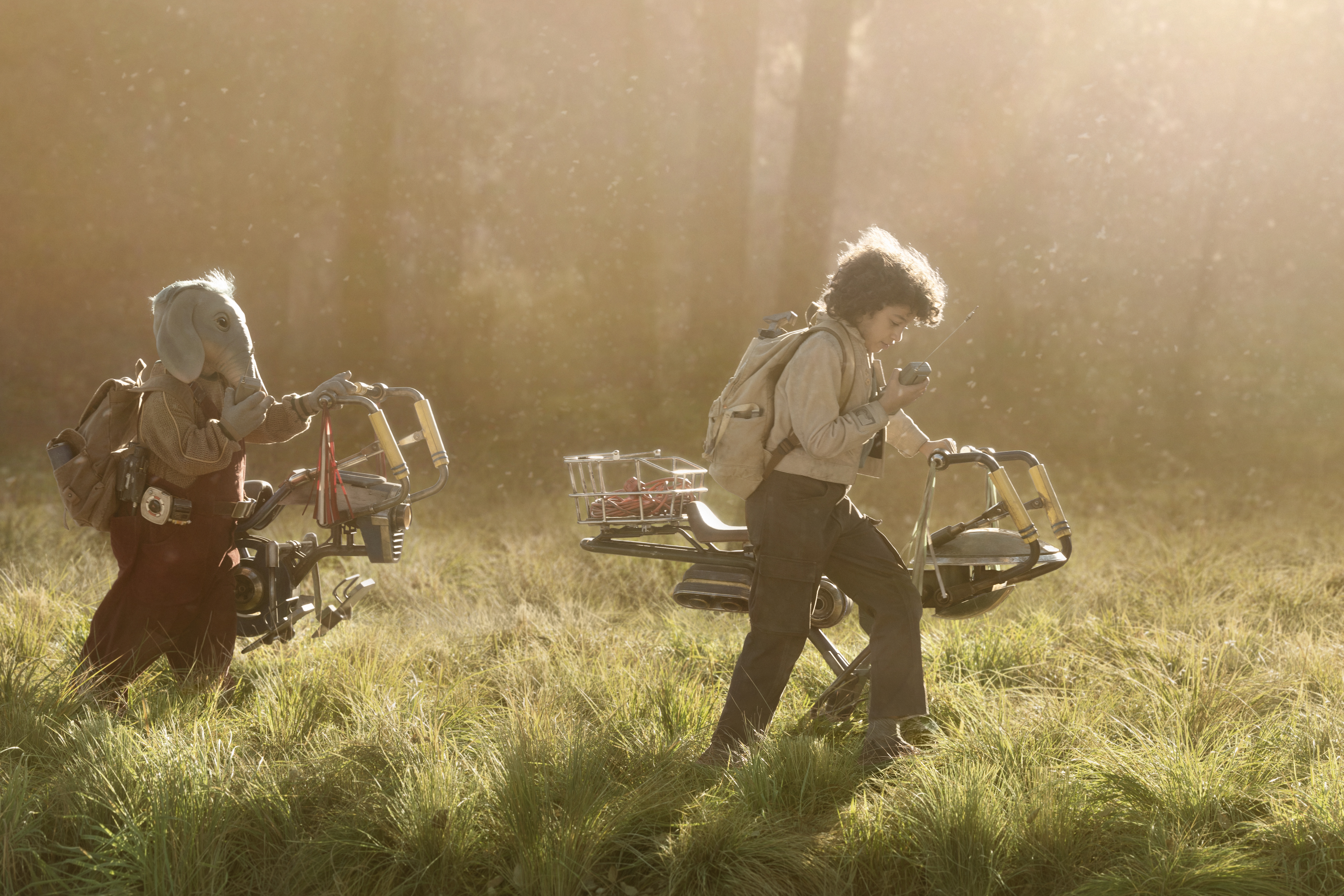Skeleton Crew is about a lot of things: A band of kids who discover a buried starship and get lost in space when they flukily hit hyperspace. It’s a view of the post-Empire, pre-sequel-trilogy Star Wars universe, far flung from the Skywalker Saga.
But in its first episode it is, first and foremost, a family show. And so it draws its sensibilities from the kids at the heart of the story — even when that took a lot of extra work.
Finding the tone of the show’s action-adventure, at least, was easy. “I think we are pretty good at being able to write at a 10-year-old level,” laughs co-creator Jon Watts (Spider-Man: Far From Home).
It helped that Watts and co-creator Christopher Ford weren’t setting out to make a Star Wars movie, so much as they were following George Lucas’ mission: to tell the type of story they loved and have it just so happen to be set in the Star Wars universe. For Skeleton Crew, that meant pulling from “obscure ’30s pirate serials” along with swashbuckling epics for the pirate side of the story. And they looked to Amblin classics like E.T. and their own childhoods to find the spirit of adventure and carefully calibrated peril.
“When we were that age, when we would go out and play — [that sense of danger is] what we were playing,” Ford told Polygon at a junket in November. “And that’s what these kids want, that adventure. They seek it out.”
Ultimately the thing that informed Skeleton Crew’s voice the most was finding the right kids. “You have a sense of who you want the kids to be in your mind. But then it’s not until our actual cast walks through the door, and you meet them and you get to spend time with them, that you realize: These kids are these characters,” Watts says. “Once they were cast, we went back into all of our scripts and punched them up to be a little more in the voice of the actual kids.”
Maintaining that authentic energy of the children was important — so important that Ford, Watts, and other Skeleton Crew creatives had to move heaven, Earth, and a fair bit of VFX to make space for it.
The main problem came with Neel, played by 10-year-old Robert Timothy Smith, but appearing on screen as a blue, elephant-like alien. “It was really important to create an environment where the kids were free to just be natural and stay feeling like kids,” Ford says. But preserving that freedom, he laughs, did take an “army of special effects people behind it to make that happen. But the core of it was still going to be this kid and his performance, and his dynamic with the other kids.”
The process was inspired by another ’80s classic, Big, where Tom Hanks would watch the younger actor playing his role do the scene first, and then mimic his choices in his side of the kid-in-a-grown-up-body performance. Ford and Watts would let Smith do multiple takes with no mask on, but with a camera recording his face and a bodysuit that included blue gloves like Neel’s hands. (“He loved the gloves; he was always doing weird things with his hands because of that,” Watts remembers, mimicking a pinching motion.) Then the “suit performer” would come in, wearing the animatronic Neel head, and mimic Smith’s choices in the scene.
“And then in post we had the option of using one take or the other take — or a combination of the two where we would use Robert’s facial performance and map it onto the animatronic, or use Robert’s body performance and then put the animatronic head on his physical body,” Watts says. “So it kind of just maximized our options in post to the end goal of just trying to capture the choices that Robert would.”
It was certainly harder than just hitting hyperspace. But it felt important — for Skeleton Crew and Neel, sure, but also just for Smith. “The decisions that a 10-year-old kid makes in the moment in a scene are just like — you’ll never guess what they’re going to do. They’re always surprising you,” Watts says. “So you just try to create an environment where you can maximize those real surprises and find a way to make sure you capture them on film.”
